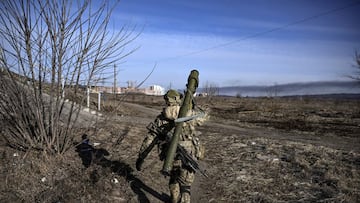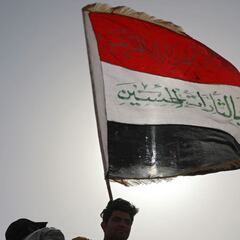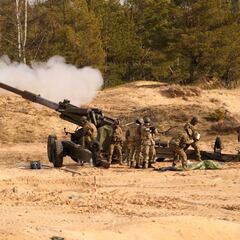What is the origin of the conflict between Russia and Ukraine? What are Russia's motives?
The conflict between Ukraine and Russia is one of the most geopolitically complex issues facing the world. With so many consequences, tracing the origins can provide some clarity.


The Russian invasion of Ukraine has refined international politics and questioned the stability of the Post-World War II global order. Economic interdependence has been touted as a project for peace, but now when Russia's economy was growing closer to those of many European countries, President Vladimir Putin has broken with international norms and invaded a sovereign nation.
More:
Since, to the surprise of many, just over two weeks ago, Russia began their full scale of invasion of Ukraine, the war has grown increasingly brutal. As Ukrainian resistance rises to levels unexpected by the Kremlin, a new strategy is needed.
While diplomatic negations between the two countries have been ongoing throughout the conflict, no agreements for a ceasefire have been reached.
While over two million Ukrainians have fled the country, the vast majority of the population remain stuck as bombs are dropped on their cities and food and water are becoming scarce. Humanitarian corridors are desperately needed, yet few seem to be materializing.
Why did Russia invade?
There are dozens of reasons why President Vladimir Putin made the decision to invade Ukraine. Publicly he has said that the invasion, what he calls a "strategic military operation," has two main objectives: to de-militarize and de-nazify Ukraine. To the Ukrainian President, Volodymyr Zelenskyy, a Jewish Russian speaker, these assertions are ridiculous and are only a pre-text to cover the Kremlin's more callous and malicious motives.
While it may be tempting to focus on the events of recent months, the tenuous relationship between Ukraine and Russia begin around the time of Ukrainian independence from the Soviet Union.
However, when trying to understand what motivated Putin, an examination of the events of late 2013 and 2014 are critical. In 2013, thousands of Ukrainians took to the streets in the Euromaiden protests which led to the removal of Viktor Yanukoych, the fourth president of Ukraine who had close ties to the Kremlin. These protests, which were in part led by a right-wing European leaning faction, frustrated President Putin who responded by seizing the Crimean peninsula.
Additionally, Putin began to fund separatists forces in the Donbas region of eastern Ukraine. Fighting between Ukrainian and separatists in the Donbas has been ongoing since 2014. Tensions reached a high on 22 February when Putin recognized two regions the, Donetsk People's Republic and the Luhansk People's Republic, as independent from Ukraine.
Two days later, President Putin began the invasion of Ukraine. Confirming the suspensions of the United States and some NATO allies, Russian troops moved into regions outside the Donbas.
How did the United States and Europe respond to the invasion?
Related stories
After the invasion of Crimea, dozens of countries deployed sanctions against Russia, in particular, the oligarchs and political leaders closest to Vladimir Putin. After he began the invasion, a new round of sanctions were implemented which has sent the Russian economy into free fall. The ruble now has very little value on international markets and many banks, including the Central Bank of Russia have been cut off from the SWIFT banking system.
Additionally, while Russia holds large currency reserves, many are owned by other central banks and sanctions do not allow them to sell Russia its reserves.
“If Russia isn’t deterred and continues its atrocities, countries in Europe will have to turn to the oil and gas sector and consider shutting it off,” said Juan C. Zarate, deputy national security adviser during the George W. Bush administration.https://t.co/mcPxELQdnm
— MarketWatch (@MarketWatch) March 12, 2022
The US has moved to place an import ban on Russian energy resource. Much of Russia's revenue comes from selling gas and oil and European countries are major customers. Around a third of the oil consumed in Europe comes from Russia and at this point leaders to not feel that it would be appropriate to place a ban on these imports. Prices are already rising rapidly and adding further scarcity could deal a massive blow to the European and global economy.

